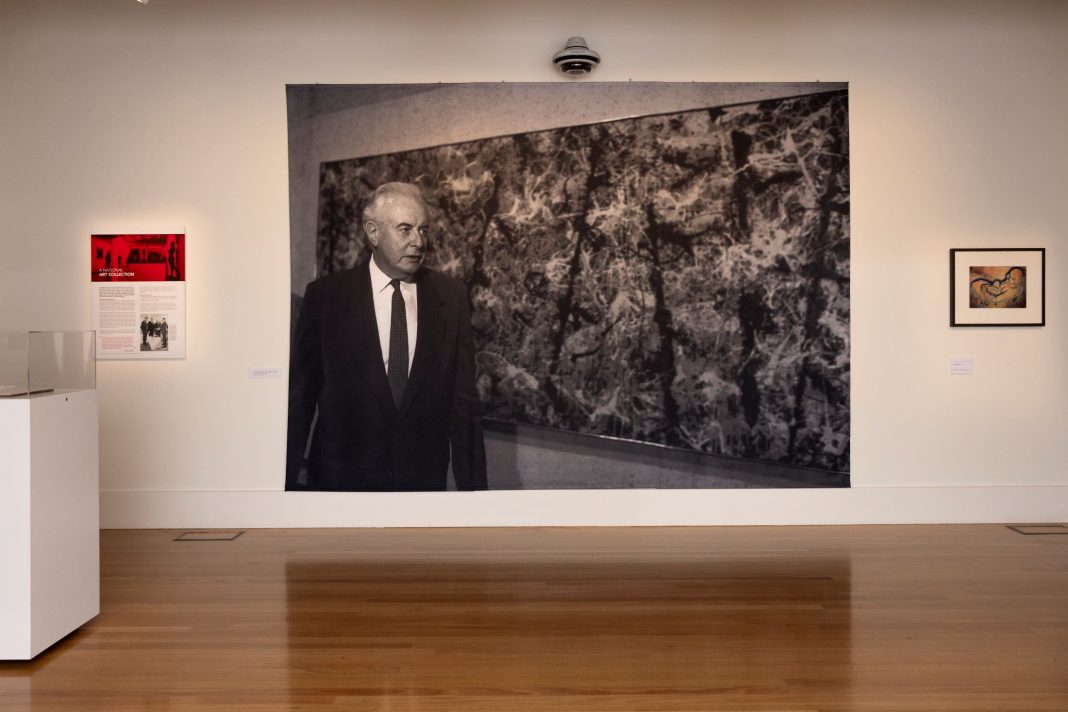Two of the original patrons of Australian arts, Prime Minister Gough Whitlam and his wife Margaret, were gifted a folio of work from artists as a symbol of their gratitude for the power couple’s unwavering support. The ‘Whitlams’ Folio’ can be seen in Dedicated to the Dedicated: Whitlam, the Arts and Democracy at the National Archives of Australia until 29 October.
Gifted in 1979, the folio itself is too precious to be handled, so works have been enlarged, printed, framed, and projected to make it easy for visitors to see the intricate detail therein. Artists who contributed to the meaningful gift include Brett Whiteley, John Olsen, Arthur Boyd, Hermia Boyd, and more.
Politics and art go hand in hand; one shapes the nation and the other is an ever-evolving commentary and living history. Whitlam was the first Australian Prime Minister to put arts in the spotlight through policies and funding, saying “A society in which the arts flourish is a society in which every human value can flourish”.
Lovers of all forms of art, Gough and Margaret Whitlam were often seen at theatre, musical performances and artistic events, chatting with other audience members during intermission.
“They wanted to elevate Australian artists amongst the world artists where they rightfully belonged. They also wanted to engineer a process where they would be properly funded and wouldn’t be in perpetual starvation. I think having an independent Australian Council for the Arts determine funding allocations and decision-making, having parties making those decisions was revolutionary, and it rapidly increased Australia’s arts community,” says Professor John Juriansz, Director of the Whitlam Institute.
The changes to art funding and the Council are Whitlam’s key legacy, says Juriansz; before Whitlam’s time in office, there was a view that arts weren’t valued. The Institute, situated within Western Sydney University, is the caretaker of the Whitlam Prime Ministerial Collection, consisting of approximately 37,000 works. Juriansz says the organisation is not a museum and is excited to share this precious artifact, the Folio.
“These are many of the leading artists in Australia at the time and the stories depicted in the arts aren’t cohesive in terms of this unitary Australian vision. They’re a unique collection of very unique artists that came together to show their appreciation to Margaret and Gough,” he says.
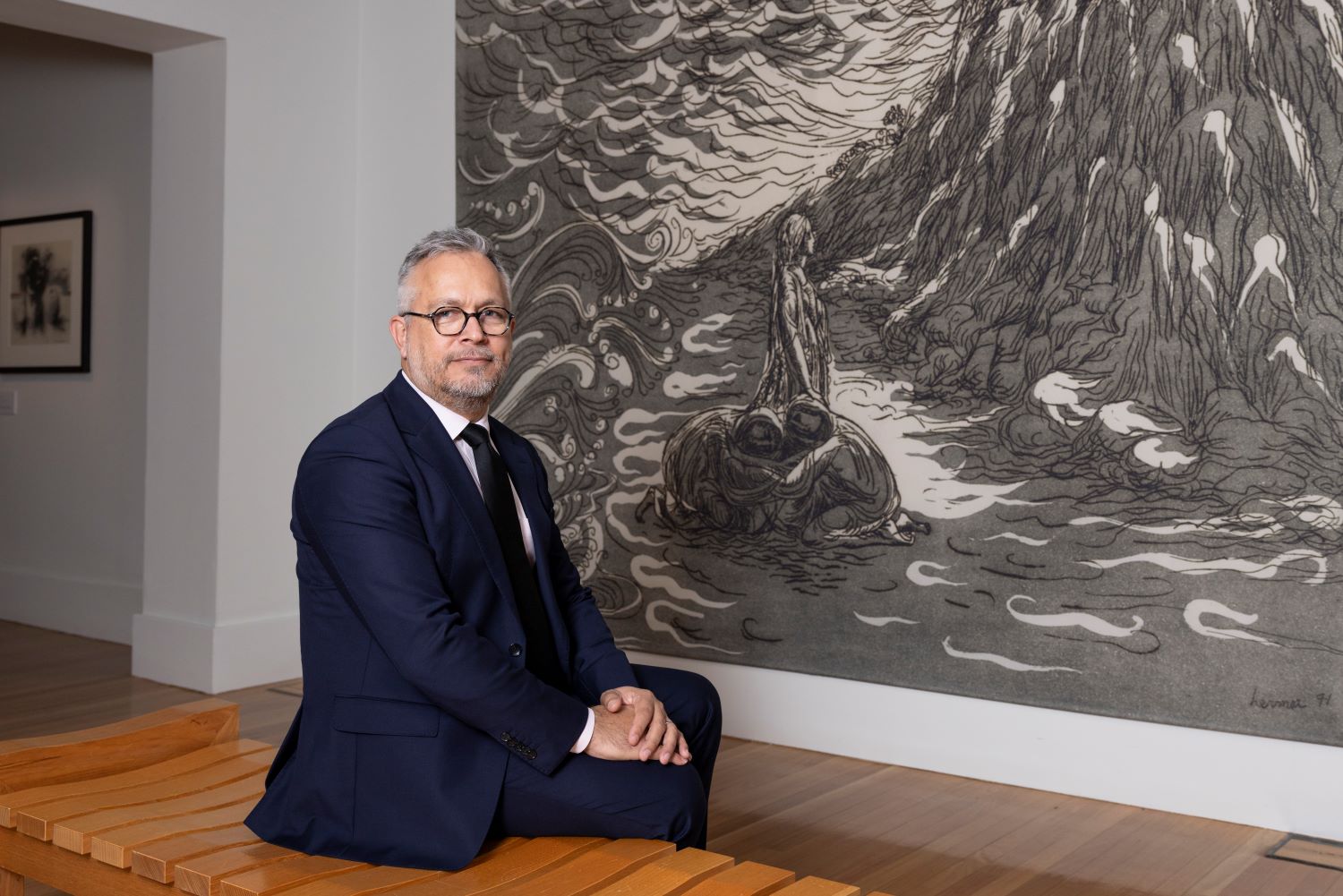
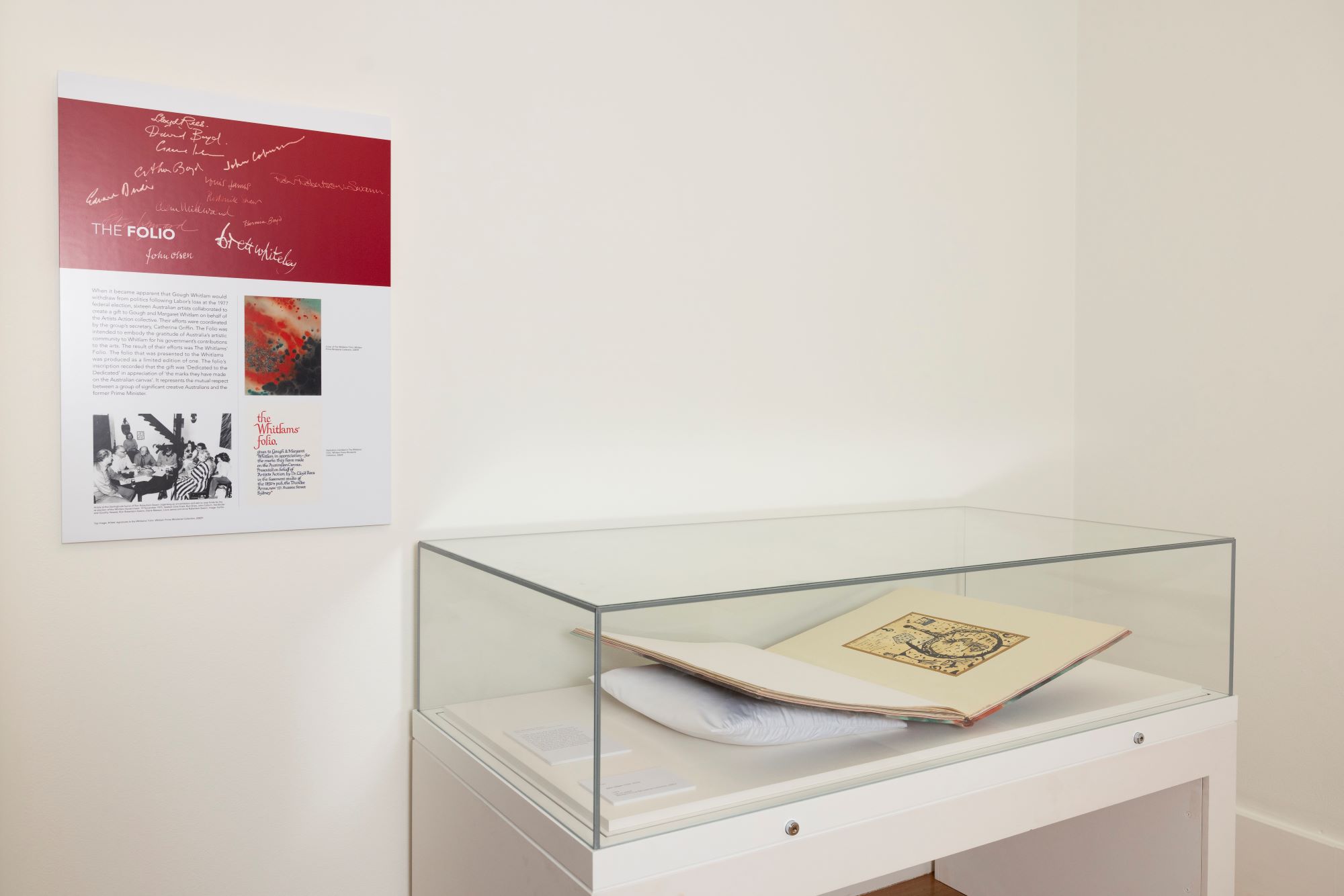
Juriansz explains that an artist book or folio was commonly placed on an easel in a library or drawing room in the late 19th century, with a page being turned each day.
“It’s a very large thing and the contents are absolutely precious, you wouldn’t want to put it on your coffee table. So, the idea of extrapolating it into this collection was a necessary event. I love the idea of having our easel and turning a page every day,” he says.
Not wanting to cause any damage to the precious entity, the NAA will turn the pages four times, to protect it from too much light exposure. One turn for each month it is on display, says Simon Froude, Director-General of the Archives.
Along with the actual Folio in a glass display cabinet and the works included on the walls, the exhibition also features videos explaining the art from the creators.
“We’ve got here a series of interviews with some of the artists about that connection and what the Whitlam government meant for culture and art in Australia,” Froude says.
Hosting records relating to government and government policy, he says the Archives are the perfect place to host the exhibition, with the visually stimulating pieces having a serious connection to their collections.
“We have policy records relating to the initiatives that Gough brought in through his government. So, it’s a nice opportunity for us to link the work that we do. Obviously, being a cultural institution, we fully support the arts and culture sector,” says Froude.
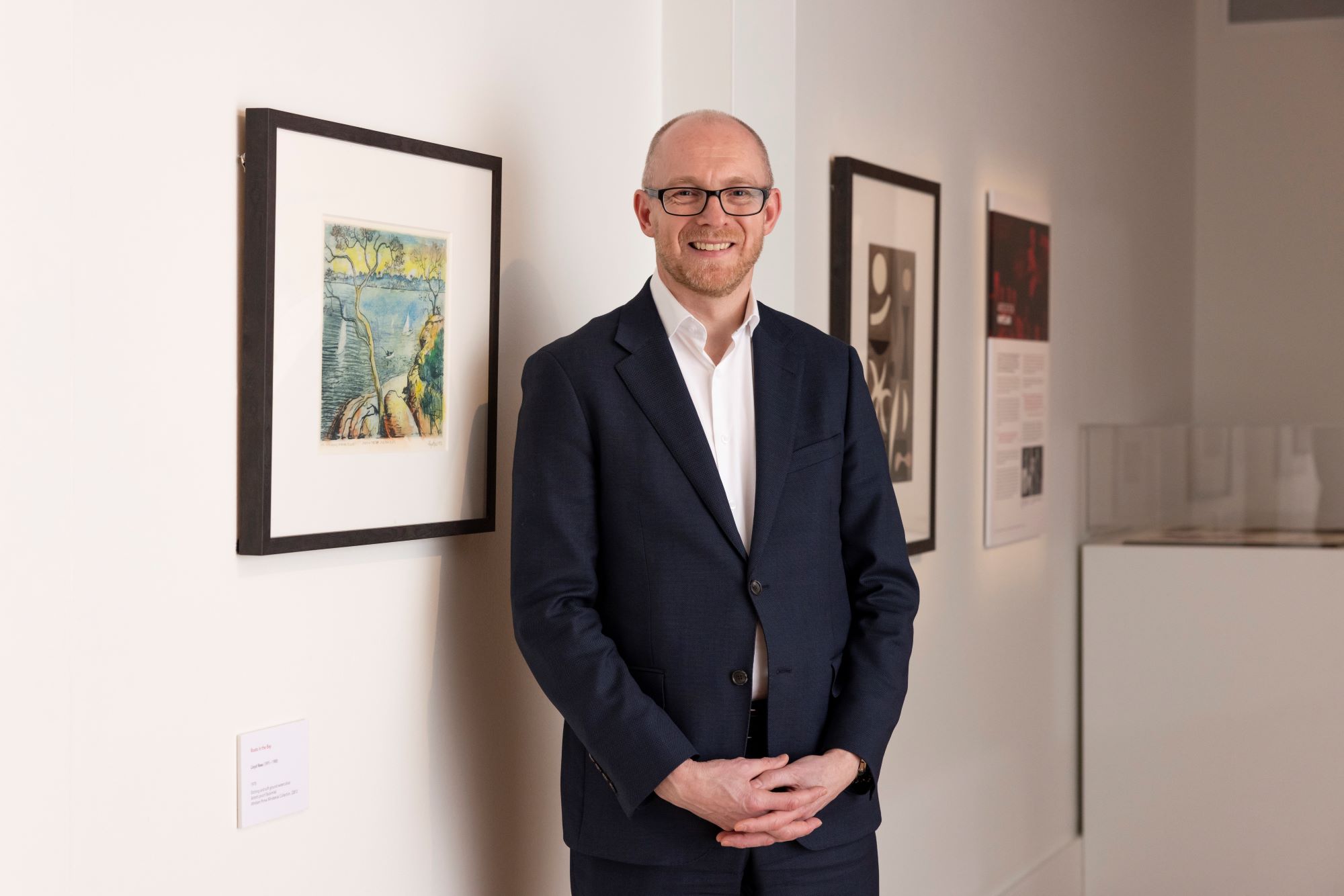
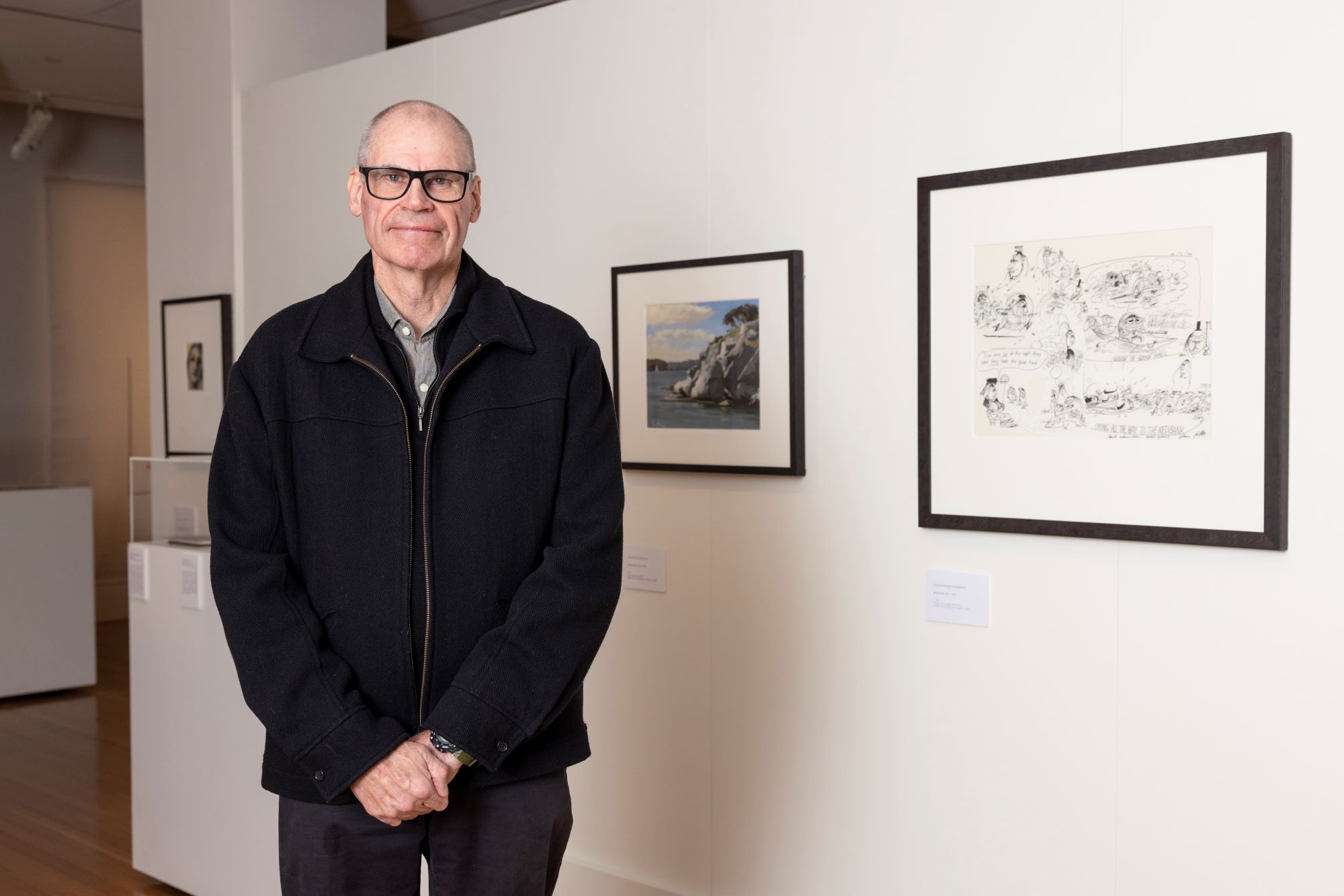
On display in full for the first time outside of the Whitlam Institute, Chair of the Whitlam Institute John Faulkner says it is a significant exhibition for the Archives to be hosting. The Whitlam family were great supporters of the arts, first with Margaret and Gough and then their children, says the former senator. Gifting the Folio to the Institute for safekeeping in perpetuity, Faulkner says they are pleased to share it with the people of Canberra and visitors to the Archives.
“This has never happened before in Australian politics, and I suspect it will never happen again. With so many prominent Australian artists just as a personal display of appreciation thanking Gough and Margaret for the extraordinary commitment they made to arts and culture in this country,” Faulkner says.
Dedicated to the Dedicated: Whitlam, the Arts and Democracy at the National Archives of Australia until 29 October; naa.gov.au
Canberra Daily is keen to hear from you about a story idea in the Canberra and surrounding region. Click here to submit a news tip.

